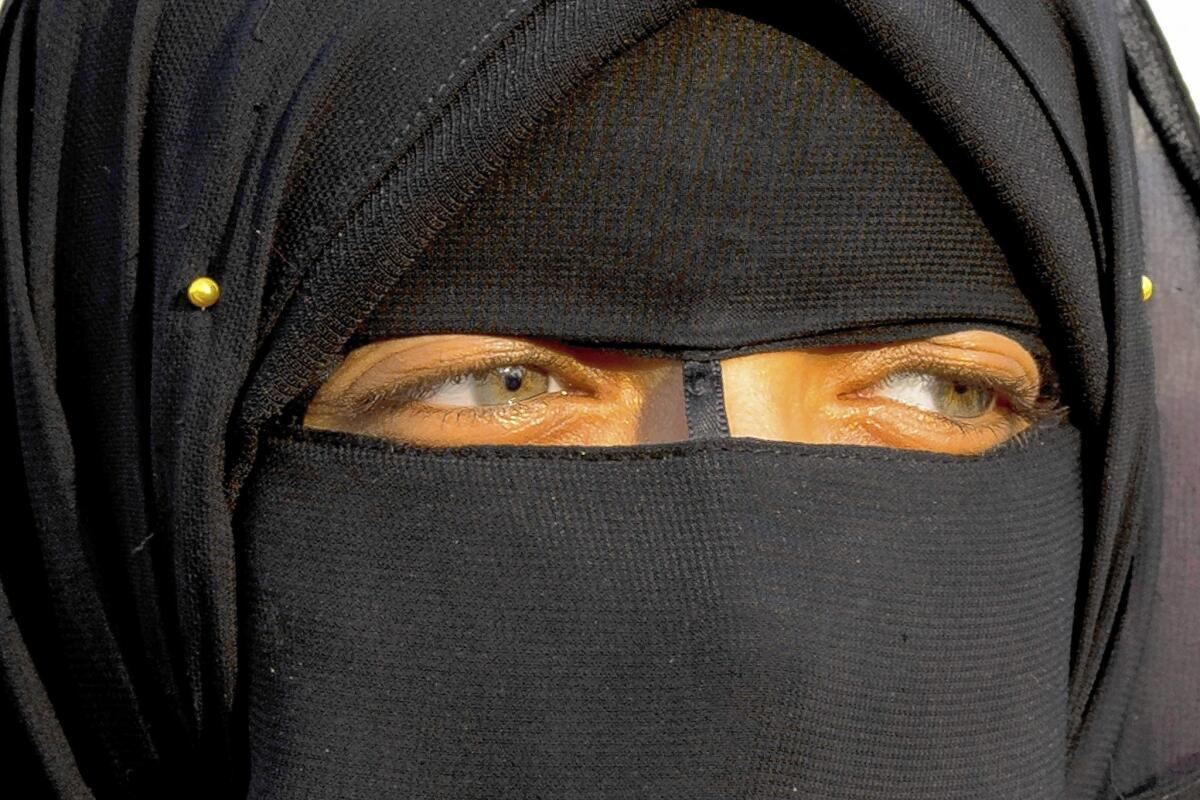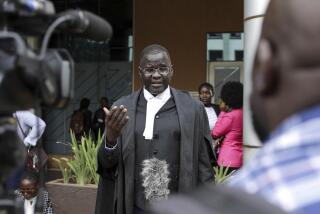Egypt girl’s death after genital excision leads to unprecedented trial

DEYARB BOQTARES, Egypt — By all accounts, Soheir Bataa was a bright and lively girl. At 13, she was diligent in her schoolwork, with her math teacher recalling an eager pupil. On her run-down street in this Nile Delta village, she could often be seen hoisting a neighborhood toddler onto a skinny hip.
Until her parents decided that Soheir would be taken to a nearby clinic — really just the upper floor of a house on a dead-end dirt lane — where a doctor who doubled as a mosque preacher was known for performing a procedure called thara. The term, alluding to cleansing or purifying, means the cutting away of a girl’s external genitalia.
In that house perched beside a rubbish-strewn ravine, Soheir died.
Female genital excision has been banned in Egypt since 2008, with legal efforts to eradicate it dating to the 1990s. But it remains common, particularly in rural areas.
Now, for the first time, a doctor is to stand trial for carrying out the procedure, with a court date set for Thursday in Aga, a town near Soheir’s village.
Rights organizations had fought for prosecution in the case, believing that Soheir’s death in June offered the chance for a precedent-setting verdict against an ingrained custom, which supporters generally refer to as female circumcision.
“We have to put a stop to this practice,” said Suad Abu Dayyeh, regional representative for the international women’s advocacy group Equality Now. “The outcome of this case will be very important.”
The procedure, thought by advocates to promote chastity and preserve a woman’s virtue, has several variants. In Egypt, it generally involves the removal of the clitoris and labia. A UNICEF report last year said rates of Egyptian women and girls who had undergone some form of cutting ranged from 96% of women in their late 40s to 81% for those under 19. Rights groups say the numbers have been dropping in recent years, with the practice rarer in cities and among educated Egyptians.
Soheir’s village lies only about 15 miles outside a major urban center, the northern city of Mansoura, but where tradition is concerned, it might as well be as distant as the moon. On the rutted street where Soheir was raised, genital cutting is considered a normal rite of passage for girls.
Neighbors said Soheir’s older sister had undergone the procedure two years earlier and that her father, who is also being charged in the case, had made it clear he would brook no argument.
“She didn’t want it,” said a cousin by marriage, Fotna Mohamed, who, like most local women, was veiled and clad in a long robe. “But she understood she did not have anything to say about it.”
The doctor, Raslan Fadl Halawa, expressed confidence that he would be vindicated, saying he was carrying out the wishes of Soheir’s parents. He also insisted to a visitor that the girl had died of an allergic reaction to penicillin rather than the procedure itself.
“I will be completely cleared,” he said.
In addition to charges of performing the procedure, he stands accused of medical negligence and running an unauthorized clinic, and the father faces charges for bringing his daughter to the doctor and requesting the procedure.
The original forensic report incorrectly described the procedure performed on Soheir as a medically necessary treatment for genital warts, activists say. Alerted by local lawyer Reda El Danbouky about the actual circumstances, Equality Now and Egypt’s National Population Council pushed for a reexamination of the girl’s death, and this year the prosecutor agreed to take up the case.
Village sentiment appeared divided, particularly over the decision to prosecute the girl’s father. Although mourning for Soheir seemed heartfelt — “She was a little flower, and we all miss her,” said a school administrator — the practice is quietly defended by many families, and the doctor’s mosque sermons are still well-attended. If one clinic is closed, villagers said, they would find another or have the procedure done at home or by a traditional practitioner.
Activists say Egypt’s military-backed interim government has shown more willingness to enforce the law than did the administration of Islamist President Mohamed Morsi, who was forced out by the army in July after massive demonstrations against his rule.
But local imams who hold sway in rural areas often actively defend the procedure. And in the countryside, it is as much a matter of tradition as religion, with minority Coptic Christians adhering to it as well.
Female genital excision is more deeply rooted in Egypt than elsewhere in the Middle East, activists say. Only a few deeply conservative states, such as Yemen, have a comparable rate, and the procedure is seldom seen in neighboring areas such as the Gaza Strip.
Although cosmopolitan young Egyptians regard female genital cutting as a throwback to other times, its consequences reverberate down through the years. An elegant woman in her 60s who lives in the Mediterranean city of Alexandria said that when she was a preteen, the family’s elderly rural patriarch decreed that she undergo the procedure and her parents acquiesced. She suffered years of health complications as a result, she said.
“It is completely at odds with the way I live my life now, something so medieval I never discuss it” with friends outside Egypt, the woman said. She did not want her name published because even now some of those close to her do not know what happened to her.
“Even when I was young, I knew I would never allow this to be done to my daughters,” she said. “Or they to theirs.”
Activists hope the court case will result in the doctor’s imprisonment and the closing of his clinic. But in Egypt, many criminal prosecutions drag on for years, and local power brokers are often able to intervene.
And opponents of the procedure fear that the country’s nonstop political turmoil could detract from efforts to keep the issue in the spotlight. “Politics is everything now,” said Vivian Fouad of the National Population Council, which runs education outreach programs in a bid to change family attitudes.
In Soheir’s village, like most rural hamlets of its kind, the cemetery lies on the outskirts, a cluster of simple tombs where a dusty road gives way to spring-green farm fields. In keeping with custom, the tombs are labeled only by family name, with no separate mention of individuals.
But beside a rough plaster wall, someone had lately laid flowers.
Special correspondent Amro Hassan contributed to this report.
More to Read
Start your day right
Sign up for Essential California for news, features and recommendations from the L.A. Times and beyond in your inbox six days a week.
You may occasionally receive promotional content from the Los Angeles Times.






